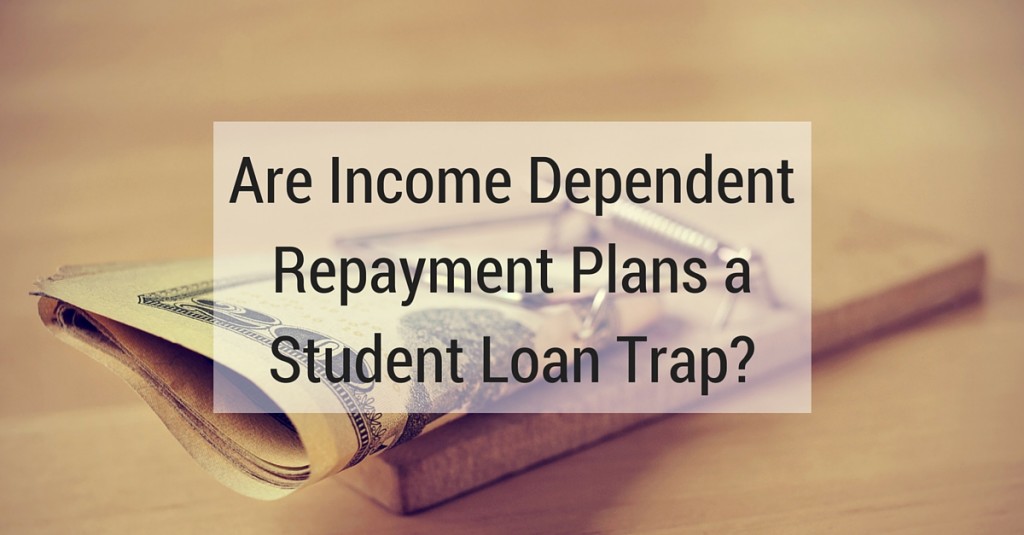If you’ve got federal student loan debt, making the monthly payments can feel like an exercise in futility. With low post-graduate incomes relative to the amount of debt they carry, it’s no wonder.
The average class of 2015 graduate with student-loan debt will have to pay back about $35,000, according to an analysis of government data by Edvisors. And according to CNBC, average starting salaries for college graduates range from $80,600 for petroleum engineering majors to $43,852 for liberal arts/ general studies grads. Reports indicate that a number of early career salaries come in at $35,000 or less, including athletic training ($35,000), human services ($33,800) and child development ($32,200).
That’s to say nothing of the millions of graduates who leave college only to find a minimum wage job or, even worse, no employment at all.
By now the federal government has done a fair job of getting the word out about the various income dependent federal student loan repayment options – income-based repayment, income-contingent repayment, and Pay-As-You-Earn. These programs allow you to bring your monthly payments in line with your income, and lead up to a discharge of the unpaid balance after 20 or 25 years depending on the repayment plan you choose.
These plans are often called Obama Student Loan Forgiveness by the various companies that charge borrowers upwards of $1,000 or more for the privilege of completing the simple (and free) forms that are freely available from the U.S. Department of Education. It’s one of those bait-and-switch terms that ignores the fact that sometimes forgiveness isn’t quite forgiveness.
It’s the tax implication at the end of the income dependent repayment options that strikes some people as the major problem. You get a tax form at the end of the repayment term for any unpaid balance, and you may have to pay income taxes on that amount.
Financial commentators such as Suze Orman have come out against the income dependent repayment options for that reason. By lowering your payments, Orman says, you’re allowing the balance to balloon over the repayment period and possibly obligating yourself to a tax burden later on.
But Orman misses a few critical points.
- You’ve Got To Have a Financial Hardship to Qualify. A borrower qualifies for one of these programs only if their income qualifies them for a hardship under federal guidelines. Those who can afford to make their federal student loan payments aren’t permitted to opt for one of the income dependent programs. That removes the possibility of someone getting into an alternative payment arrangement as a matter of convenience, and limits participants to those who would otherwise not be able to make their federal student loan payments.
- Payments Rise When Your Income Goes Up. Payments under the program adjust annually based on your income, and rise when you make more money. The payment is capped at the 10-year repayment amount. If your income rises significantly, your participation in the program isn’t saving you any money.
- There are Benefits to Interest Accrual. Though it’s true that interest continues to accrue on your loans, it probably won’t end up making things worse for you. If your reduced payment doesn’t cover the interest, the government will pay that interest on your Subsidized Stafford Loans during your first three years in an income dependent program. Interest that does accrue after that time won’t compound (which is the opposite of what happens when you’re in a hardship forbearance). Compounding interest make the loan balance rise more quickly and allows the government to effectively charge interest on interest.
- You’re Allowed to Pay Your Loans In Full. There’s no reason you can’t decide to pay off your federal student loans when your income rises. Rather than continuing to make payments for 20 (or 25) years, you can write a check to the government and make the balance disappear without paying anymore interest or risking the tax consequences of discharge of the unpaid balance.
- Remember True Forgiveness Plans. Finally, there are a number of federal student loan forgiveness programs that allow you to wipe out the unpaid balance without tax consequences. The best known of these program is Public Service Loan Forgiveness, but there are a number of others. If you’re working towards one of those tax-free forgiveness programs it makes sense to elect an income dependent repayment program early on.
Don’t dismiss income dependent repayment plans for your federal student loans. Not only will they reduce your payments but they allow you more freedom to pay your loans in the way that’s most effective and efficient for your personal financial situation.
